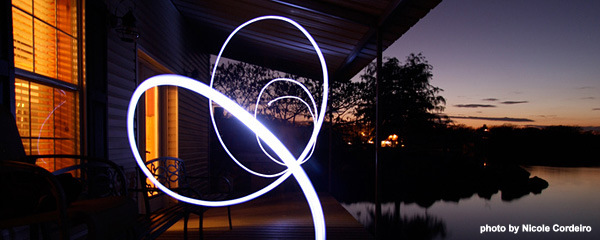
by Nicole Cordeiro
by Lynda Nash
And homework this week, Polly, is to write a story: on any subject; set in the past, present or future; first, third or omniscient point of view; word count arbitrary. The only stipulation is that the story must not contain any ‘ing’ words.
My student, Polly is the affectionately nicknamed ‘Queen of Ing.’ Polly writes short stories. Her characters are a race of super humans. They can walk through doors before they’re open (opening the door, he left the room), they can swim while diving (diving off the board, she swam to the side) and they can walk and jump into public transport (walking down the road he jumped onto a bus). Her characters have taken multi-tasking to the max.
Starting a sentence with a dangling modifier might be okay if we are writing about superheroes but what if we, the unsuspecting reader, were to read ‘running across the field, he climbed a tree’? Would we think Wow, this guy is amazing – he can run and climb trees at the same time! No, we’d be more inclined to think that actually, no he can’t. And if we were to read that his wife can cook the evening meal and do the washing up simultaneously (‘cooking the dinner, she washed the dishes’), wouldn’t we think pull the other one? Actually, being a woman, she probably can! I don’t want to be accused of sexism, that wasn’t a good example, but you get my point. In both cases the sentences would benefit from the addition of either ‘before’ or ‘after’: ‘After he ran across the field, he climbed the tree’; ‘Before she cooked the dinner, she washed the dishes.‘
Now I’m not completely anti-ing. I’ve nothing against singing or laughing or drinking provided these acts are done one at a time. What I would like to know is – what’s the attraction? What compels a person to start a sentence with an ‘ing’? Is it an attempt to lessen the use of personal pronouns so that every sentence doesn’t end up sounding like they were taken from a Peter and Jane book? – he did this… and she did that. Are our brains hardwired to think in this format? Is this something we picked up at school? In microfiction, with the need to cut back on wordage, ‘ings’ seem to come in handy but it’s just an illusion.
The complexity of English grammar is something that would take more than an hour and a half lesson per week to fathom and, as much as my OCN students want to learn, the reason they come to class is to write creatively for pleasure, not to be confounded by gerunds or perplexed by participles. Too many rules can block creativity and my adage is ‘just write and don’t worry if it’s wrong.’ But I couldn’t resist giving the above homework! And Polly rose to the challenge; she produced a piece of prose that contained almost no ‘ings’ (a stray one got in but I think it turned out to be quite plausible).
Over weekend I was asked to review a book for a magazine. I won’t name any names. The novel was set in Ireland, which is, according to my husband, my ‘spiritual’ home, so I was quite excited and read avidly until, in the third chapter, I came across the sentence: closing the door, he put the kettle on. I tried to imagine that the kitchen was small so the character could fill the kettle while closing the door with his foot. I imagined him with very long arms. I tried to make the sentence work but no matter which way I looked at it, it simply didn’t. And I kept wondering why the publishers hadn’t noticed that too.
No writer is exempt from committing the ‘sin of ing’. We all do it at one time or another. But if not kept in check, or curtailed, it can become a routine.
Breaking the ‘ing’ habit has been hard for Polly, but she is now in recovery. In fact, she’s become an avid ing-spotter. If you come to our class thinking your character can walk and tie her shoe laces you’d better make her Mrs Incredible or she won’t get under Polly’s radar. Writing this blog, I am going to post it now.


Good luck to Polly. I don’t like ing either. In fact I hate it. For me it’s not so much the sense of it, I just don’t like it, it’s a gut feeling, it makes me sag.